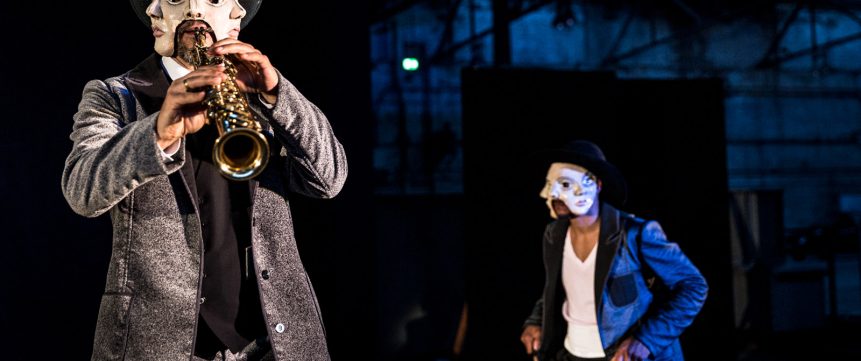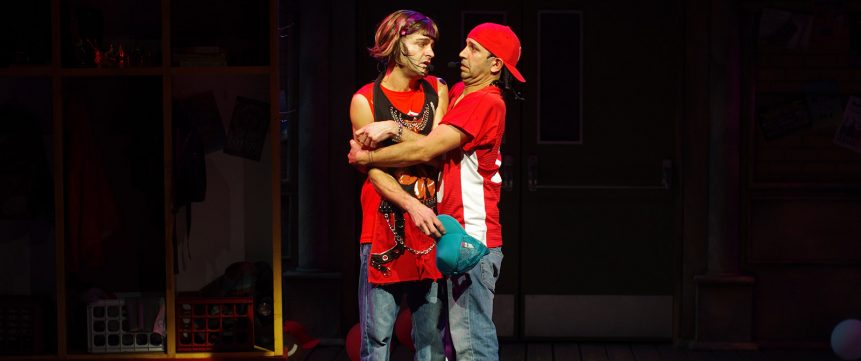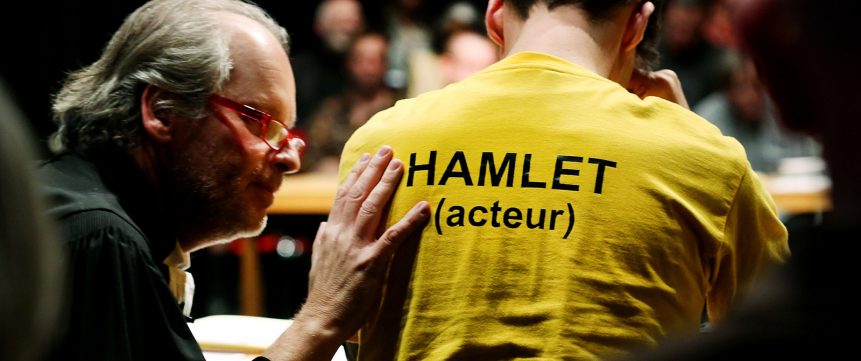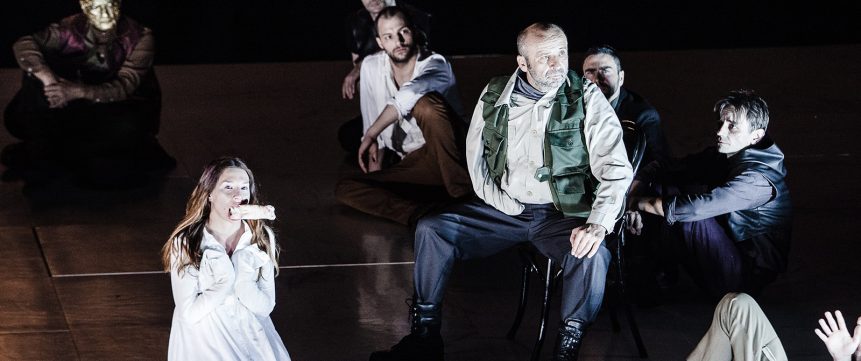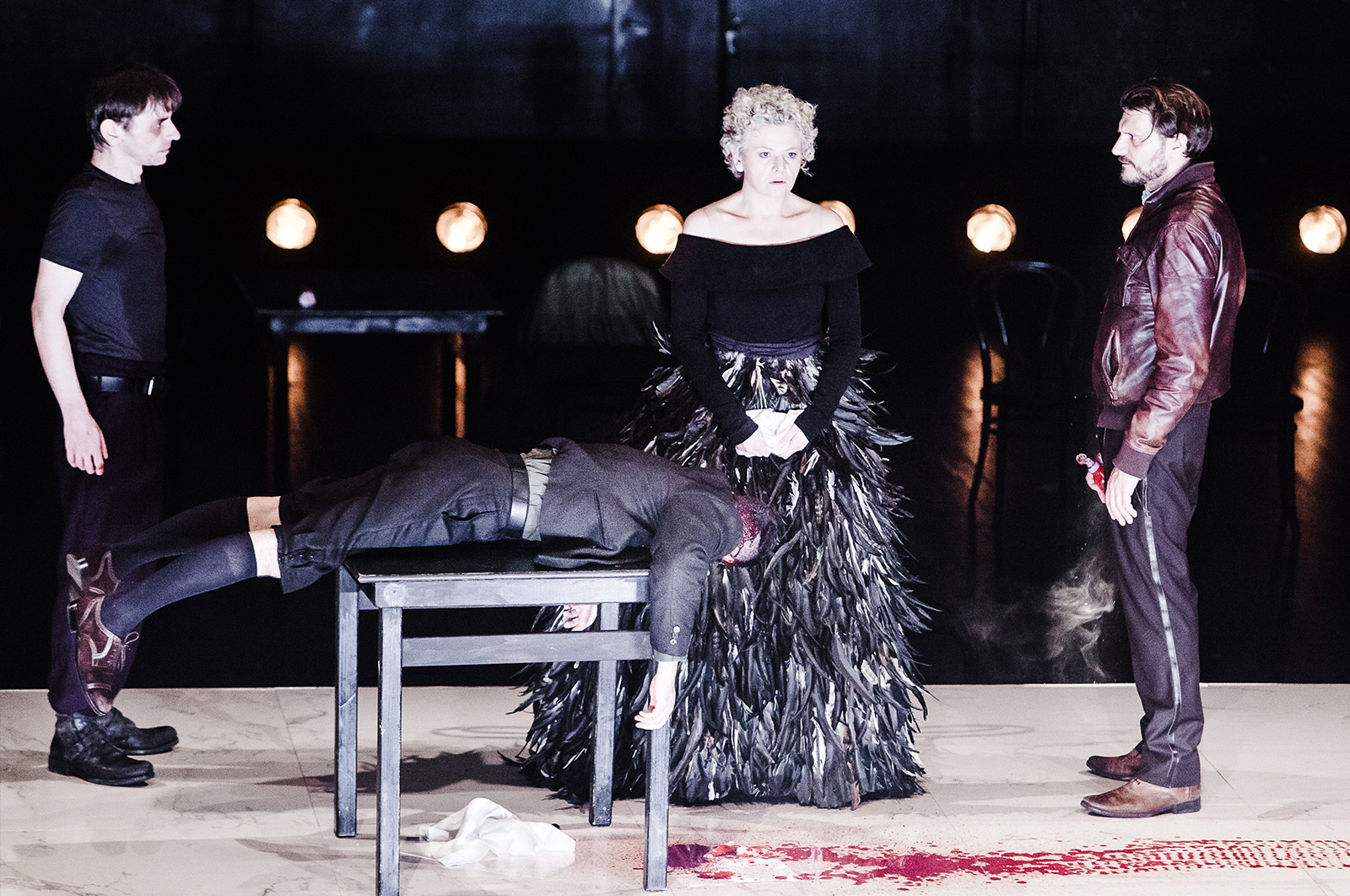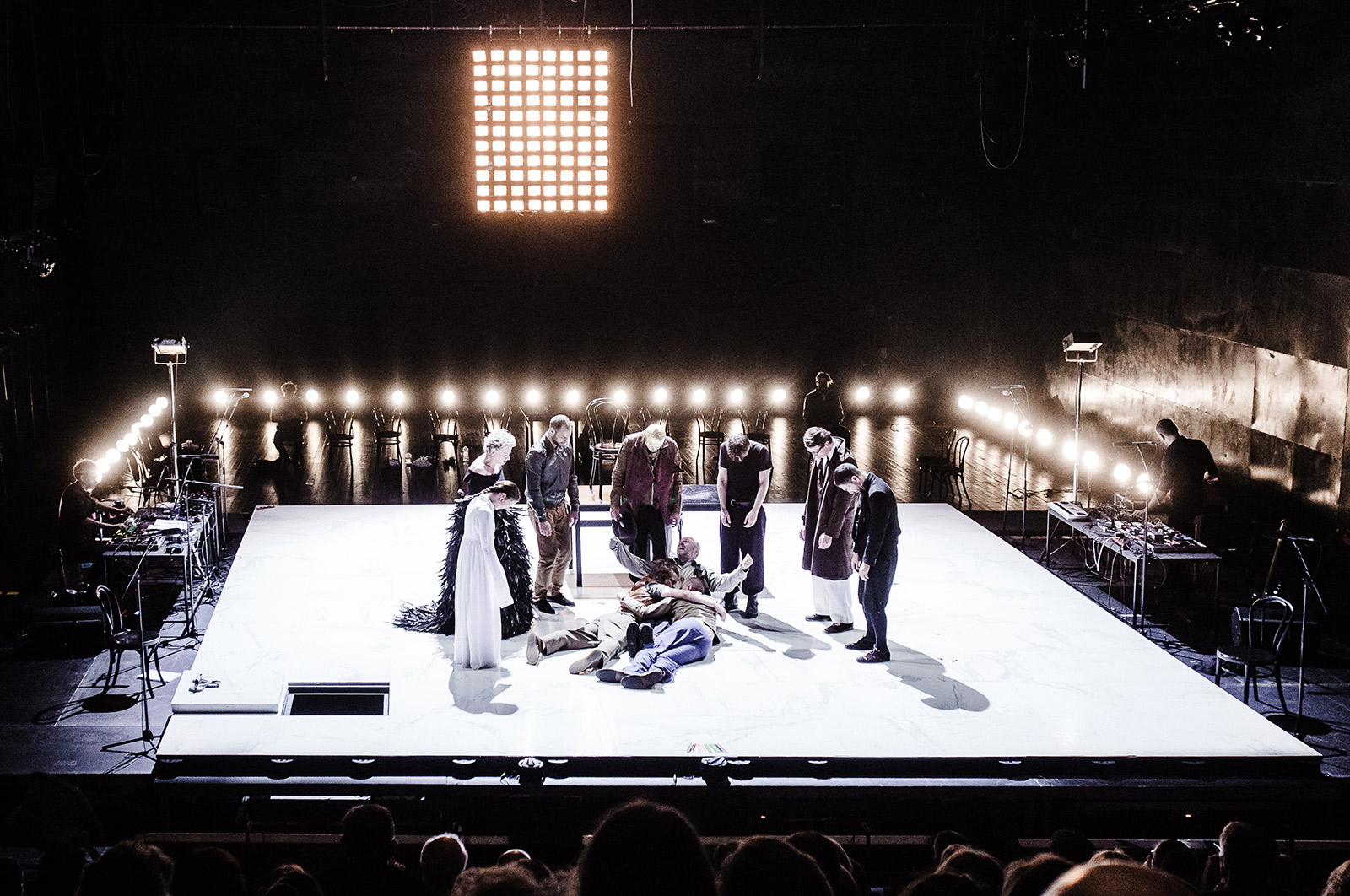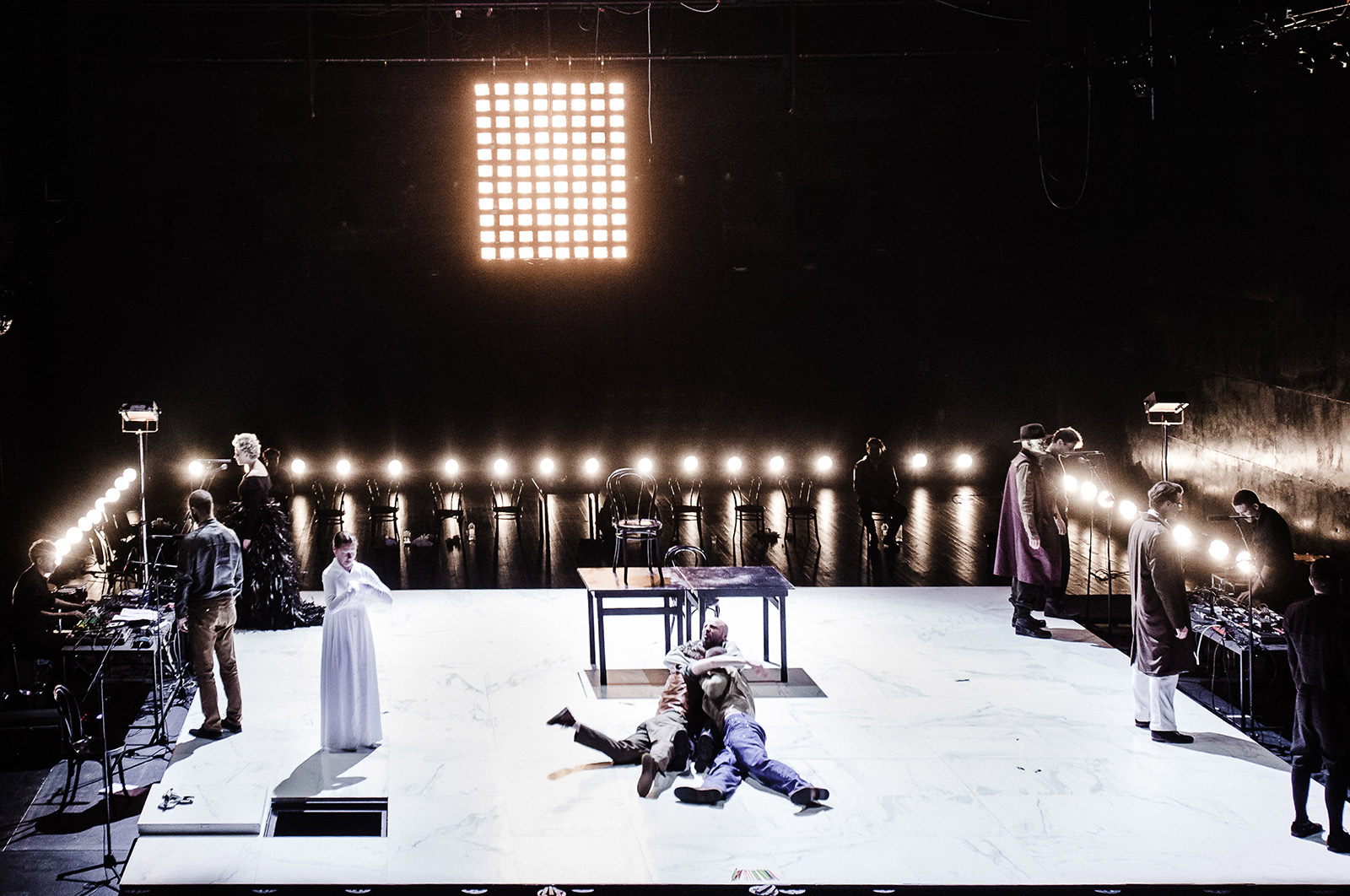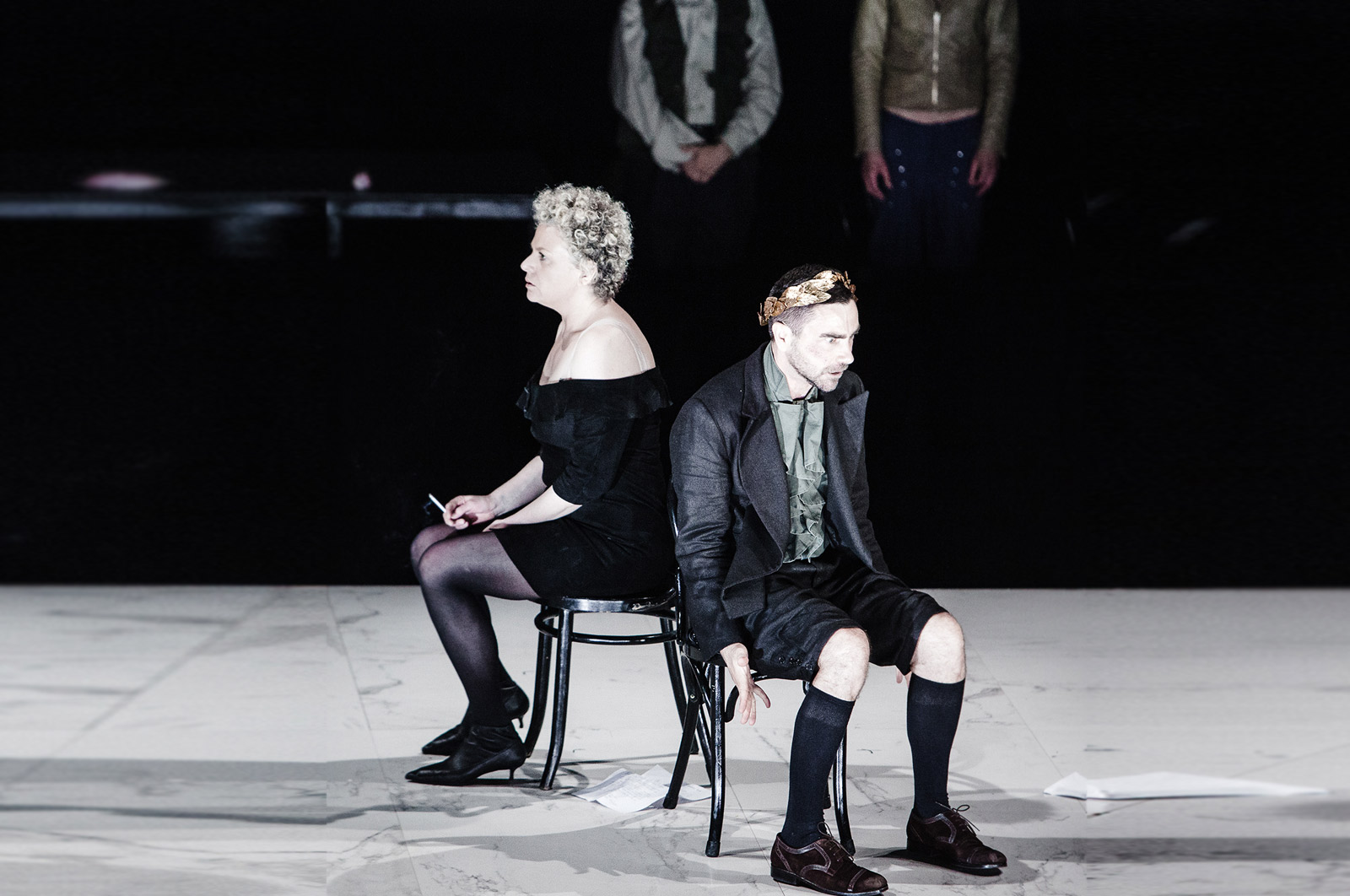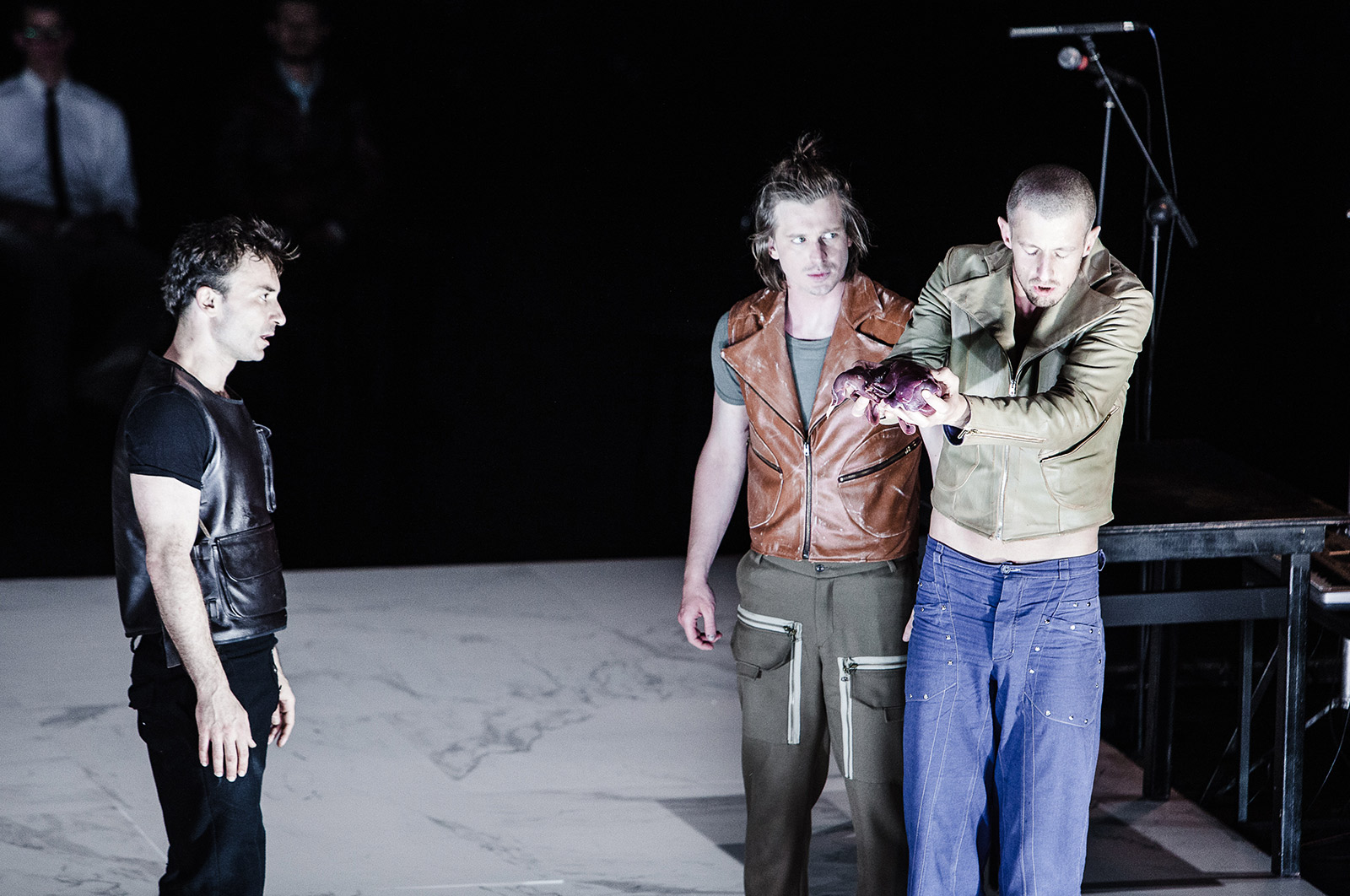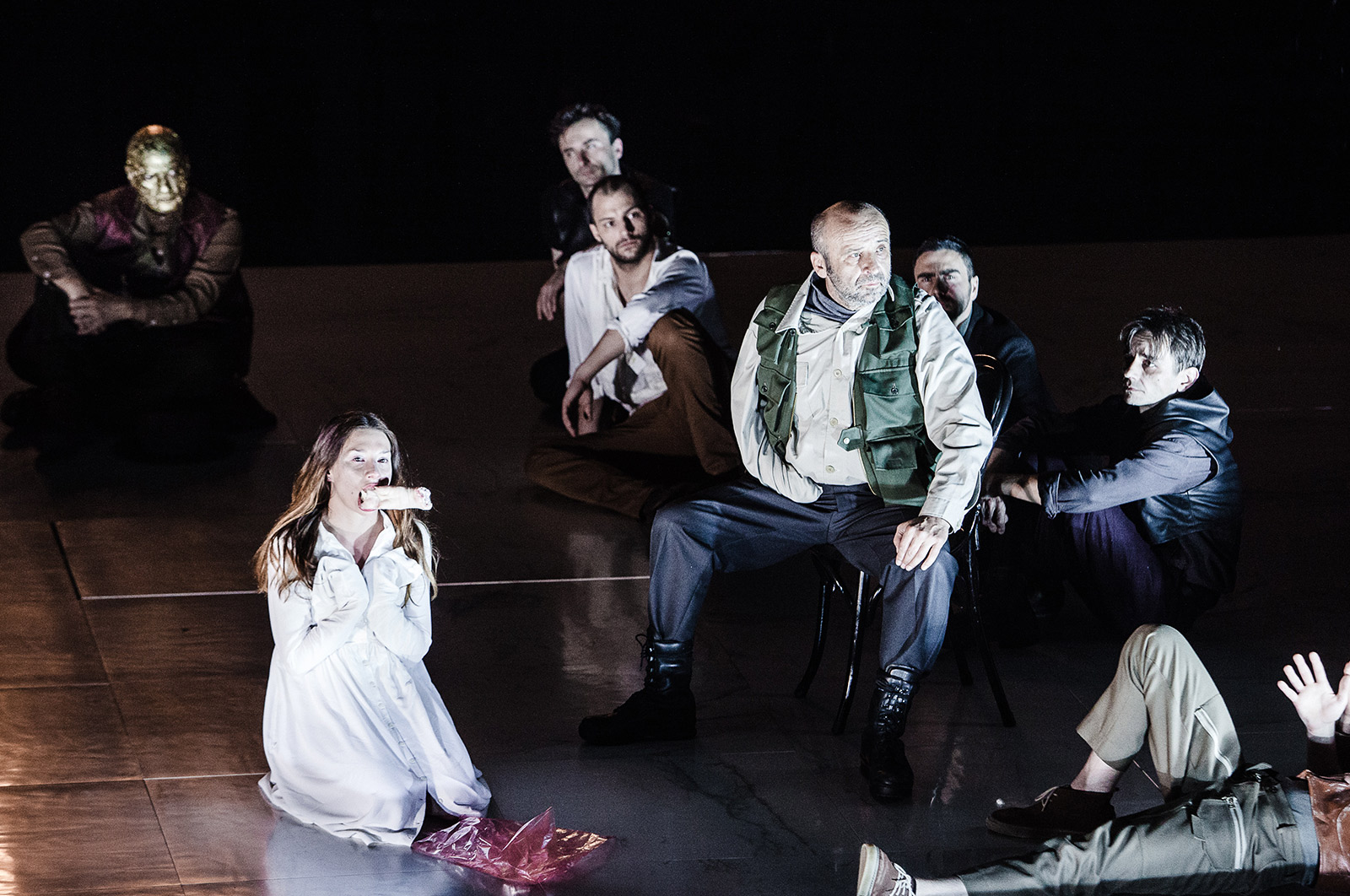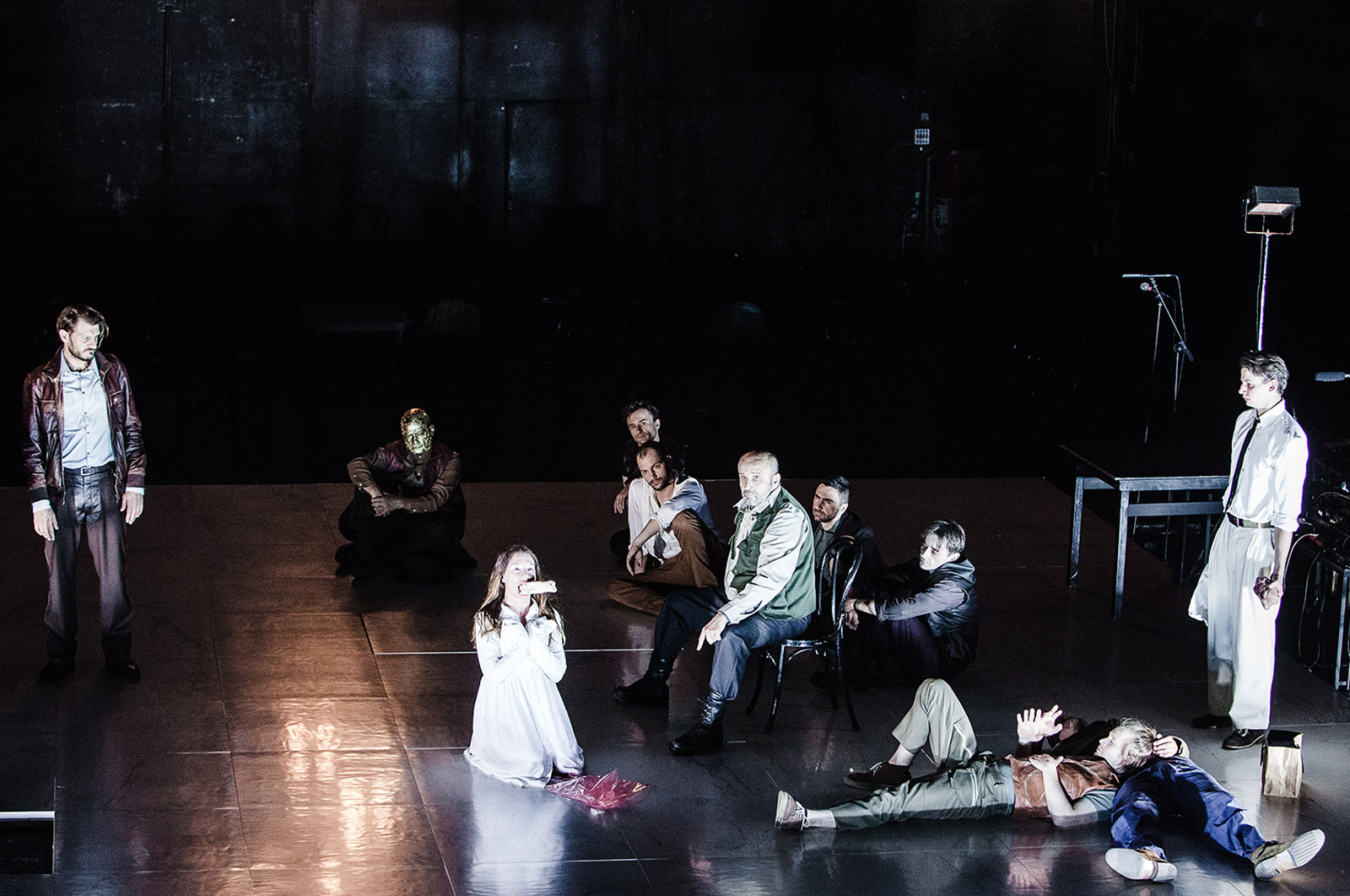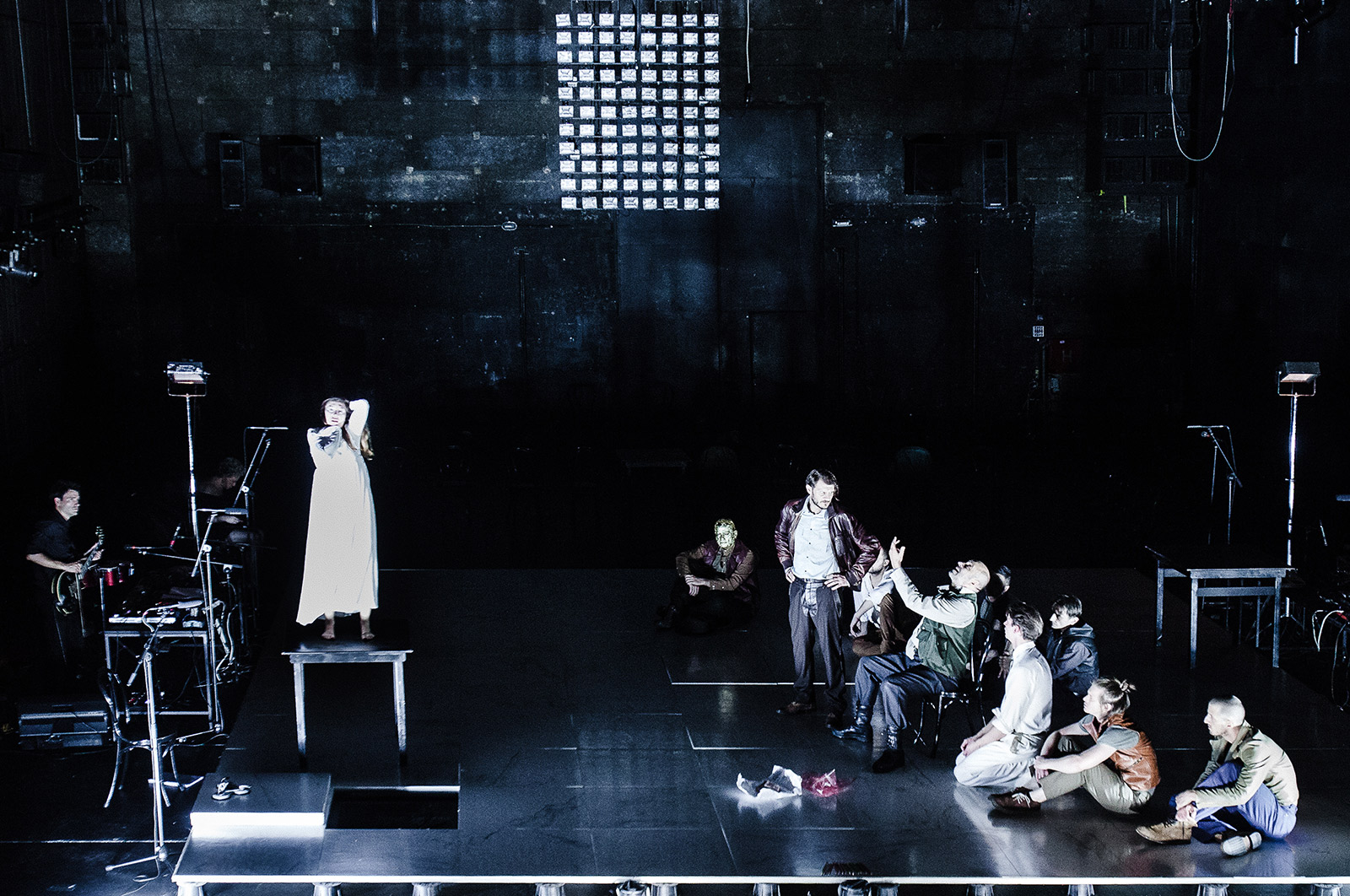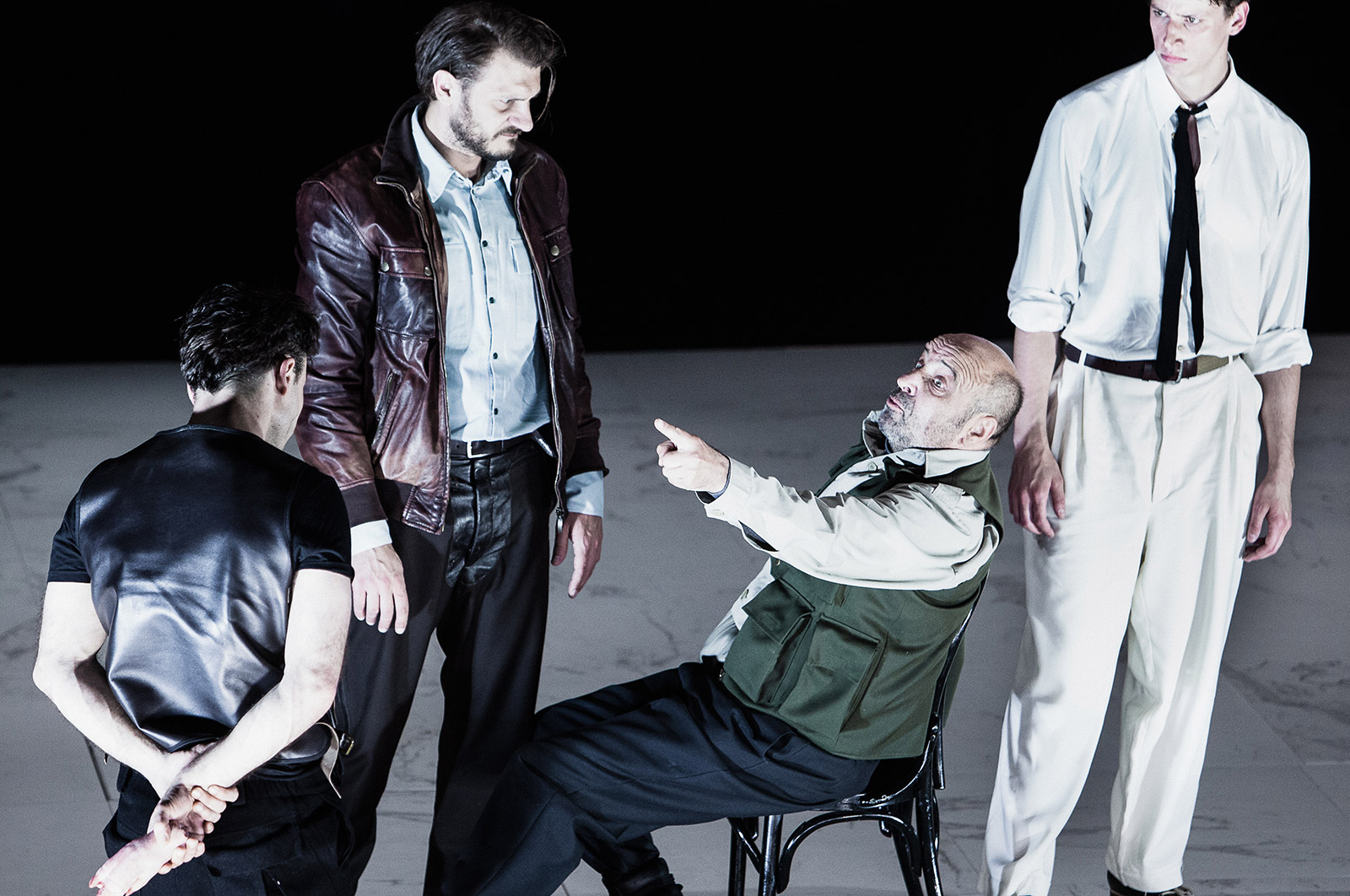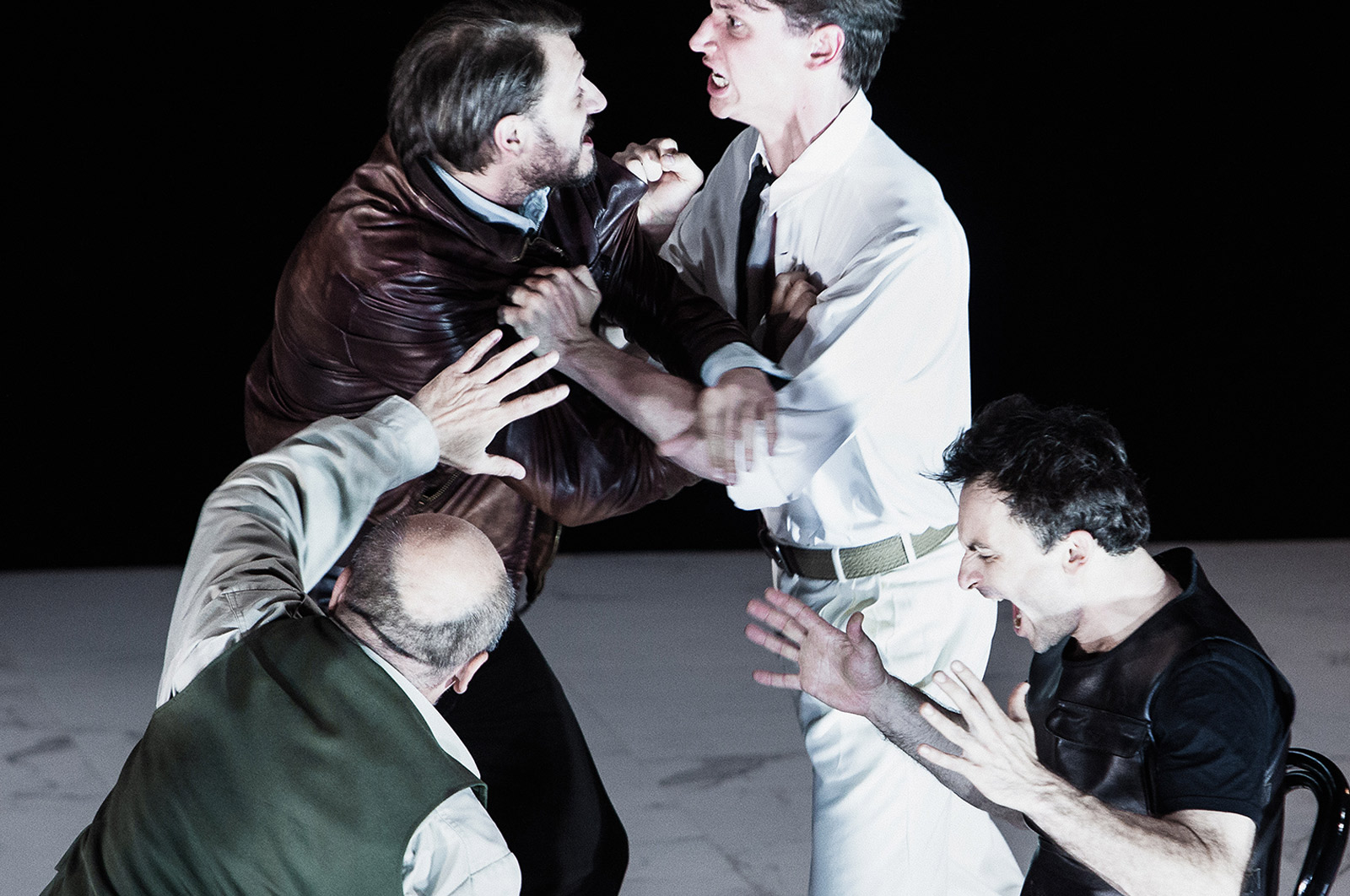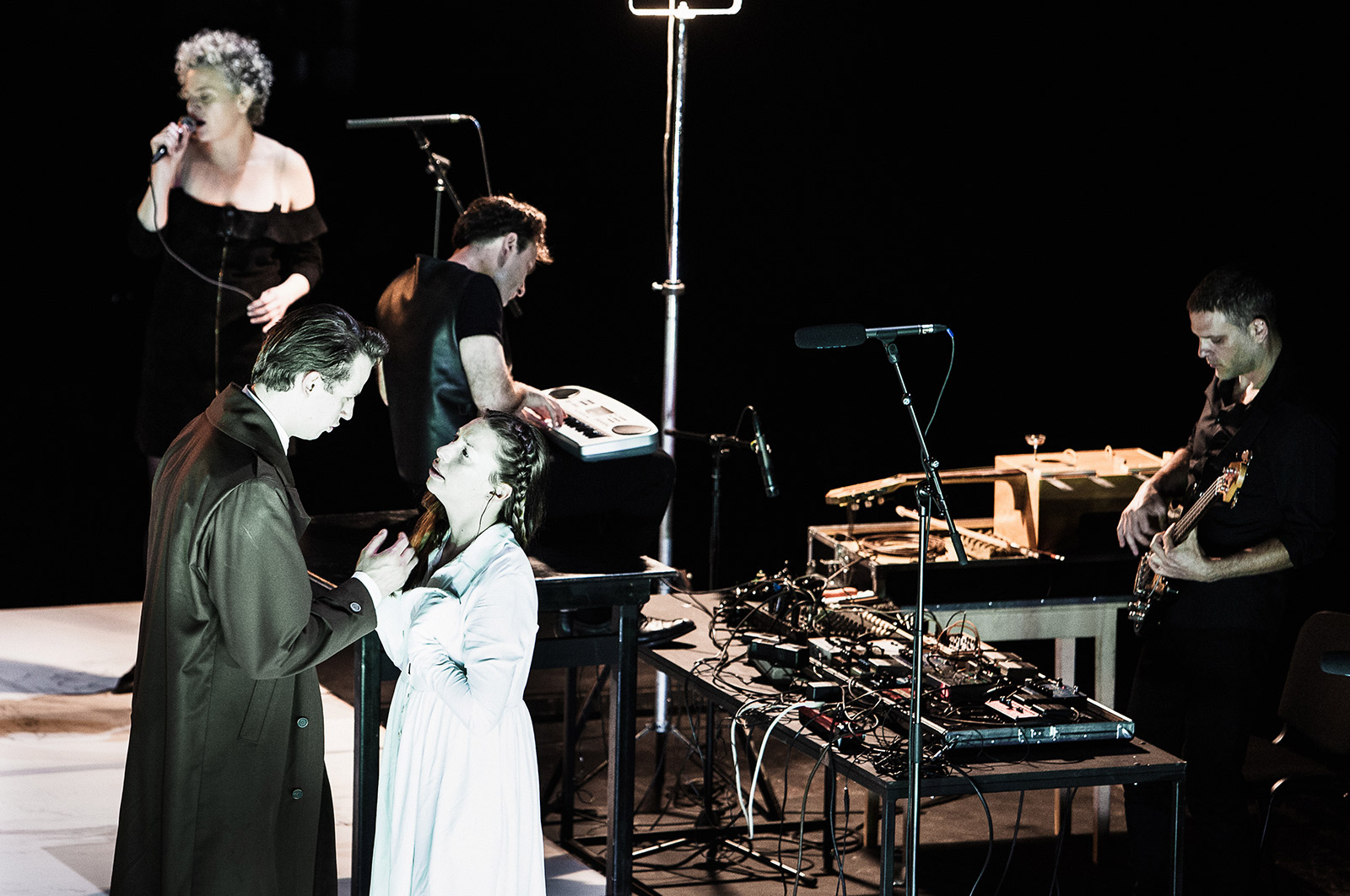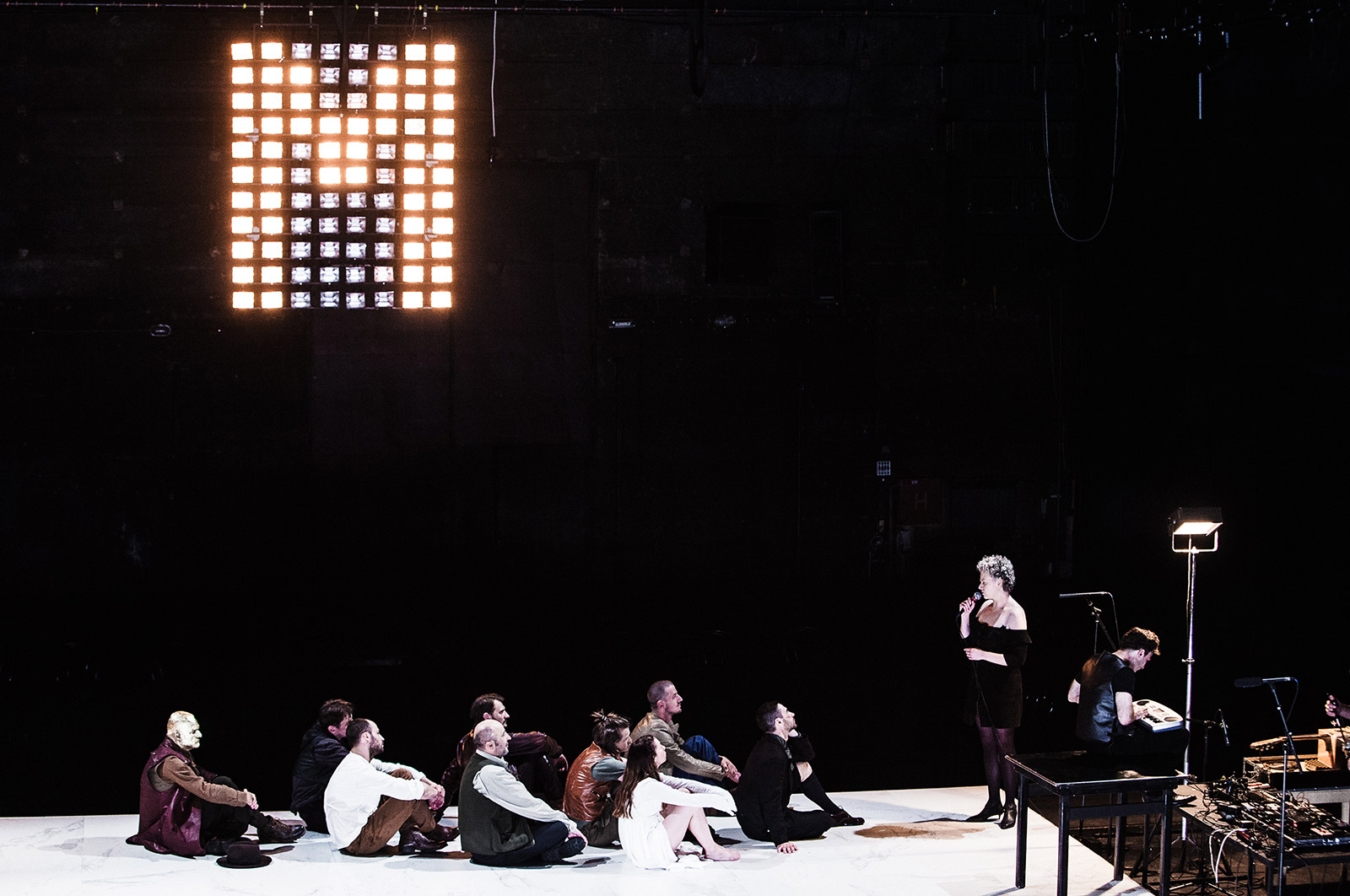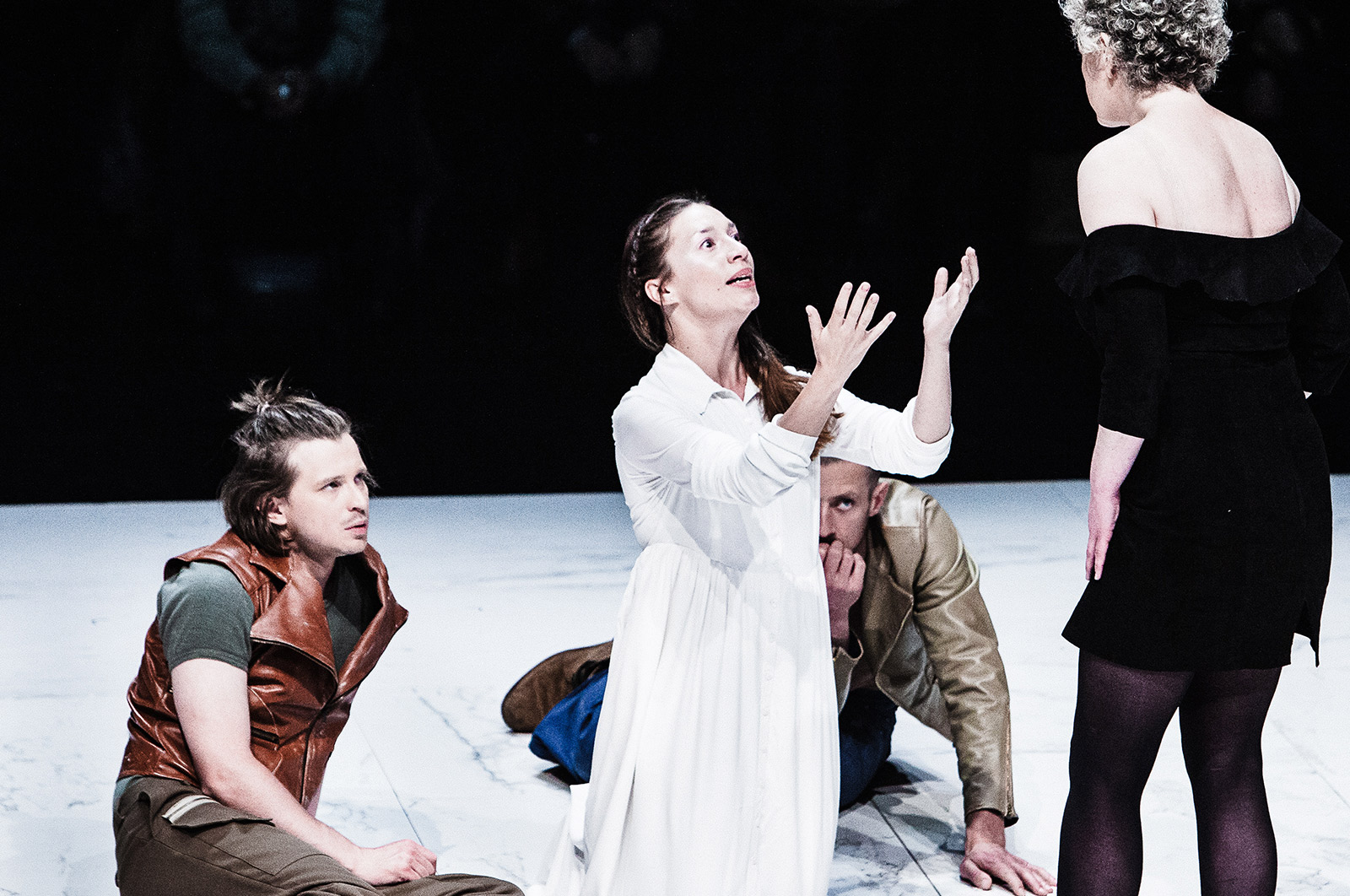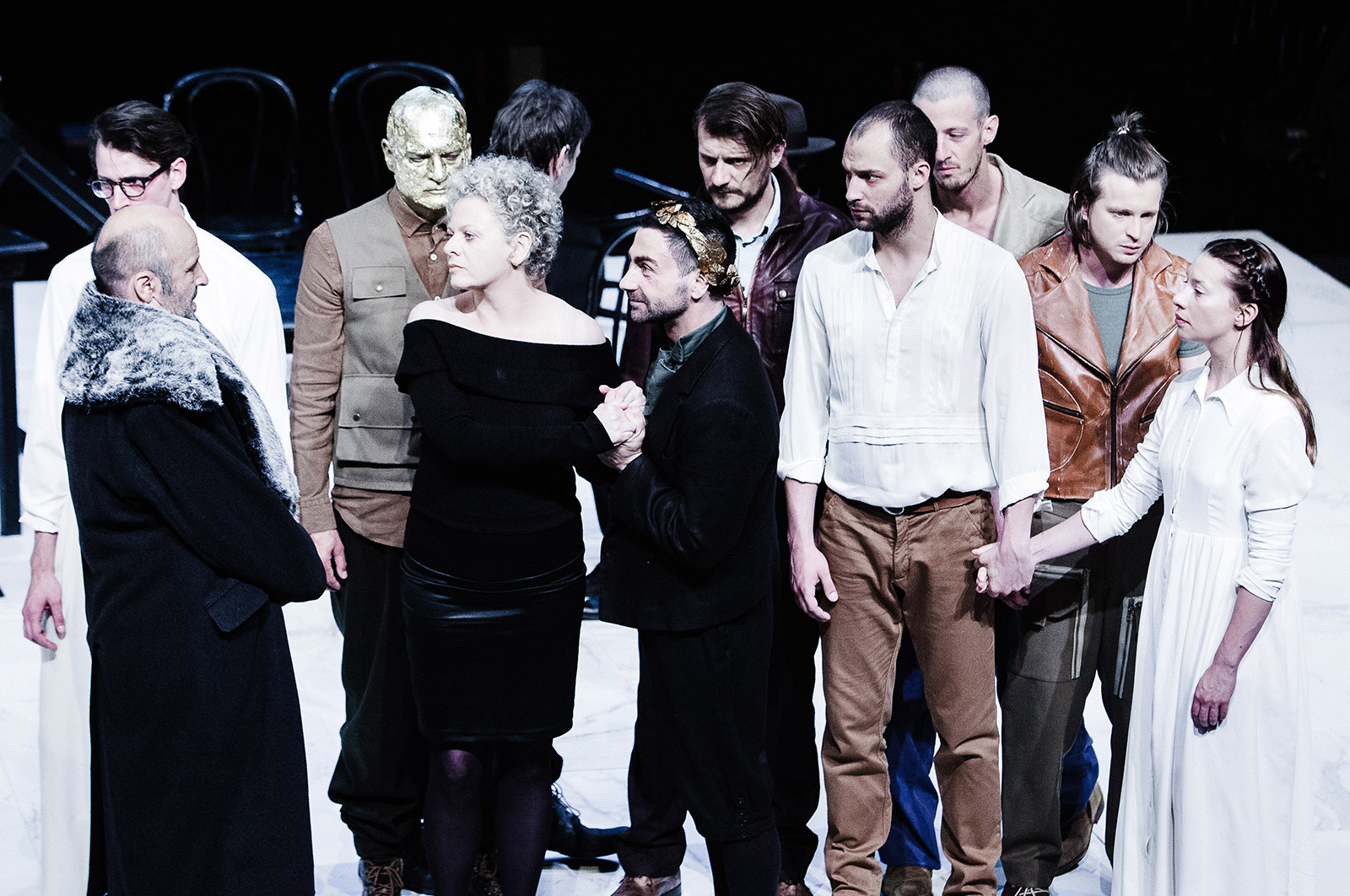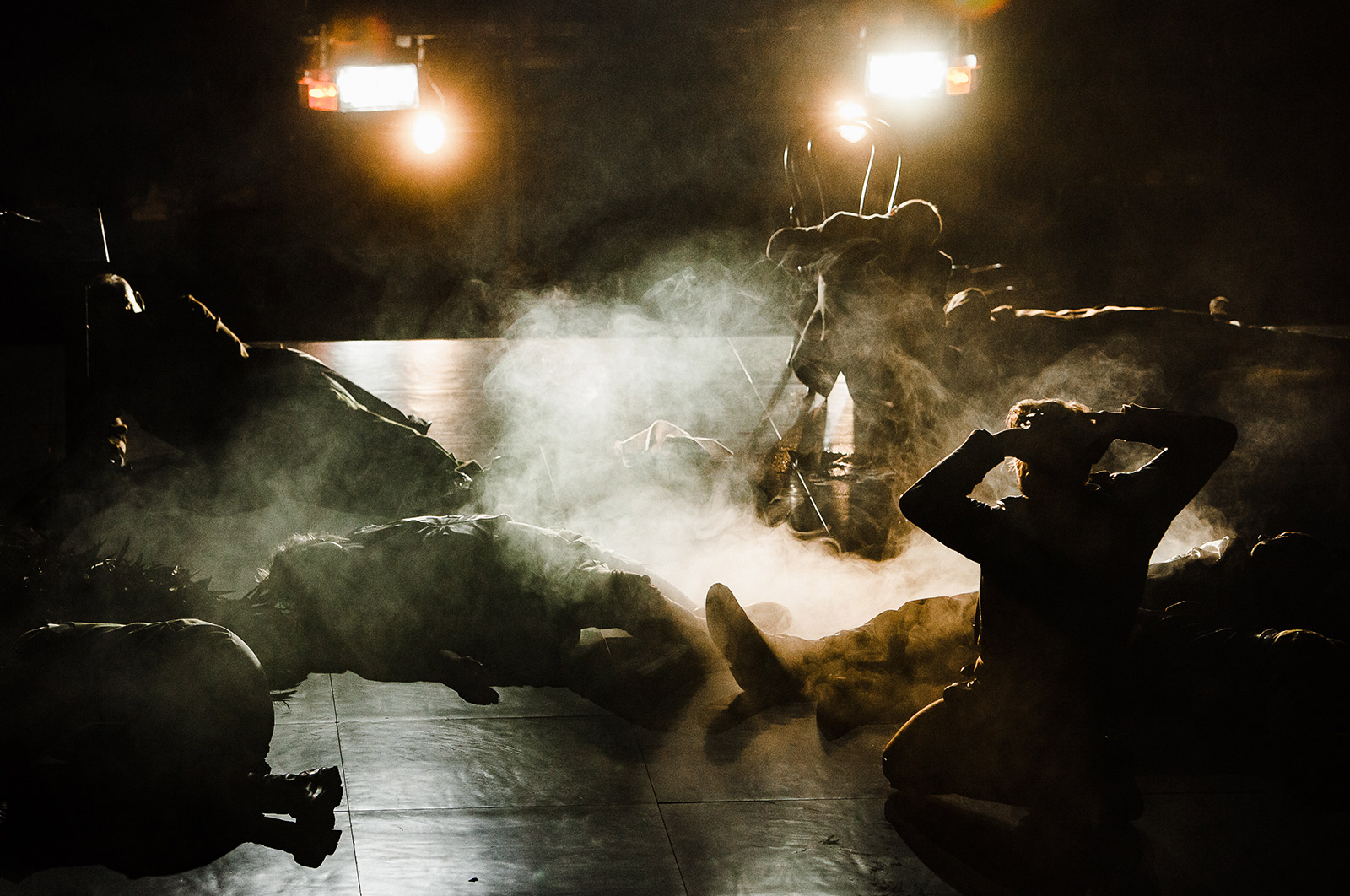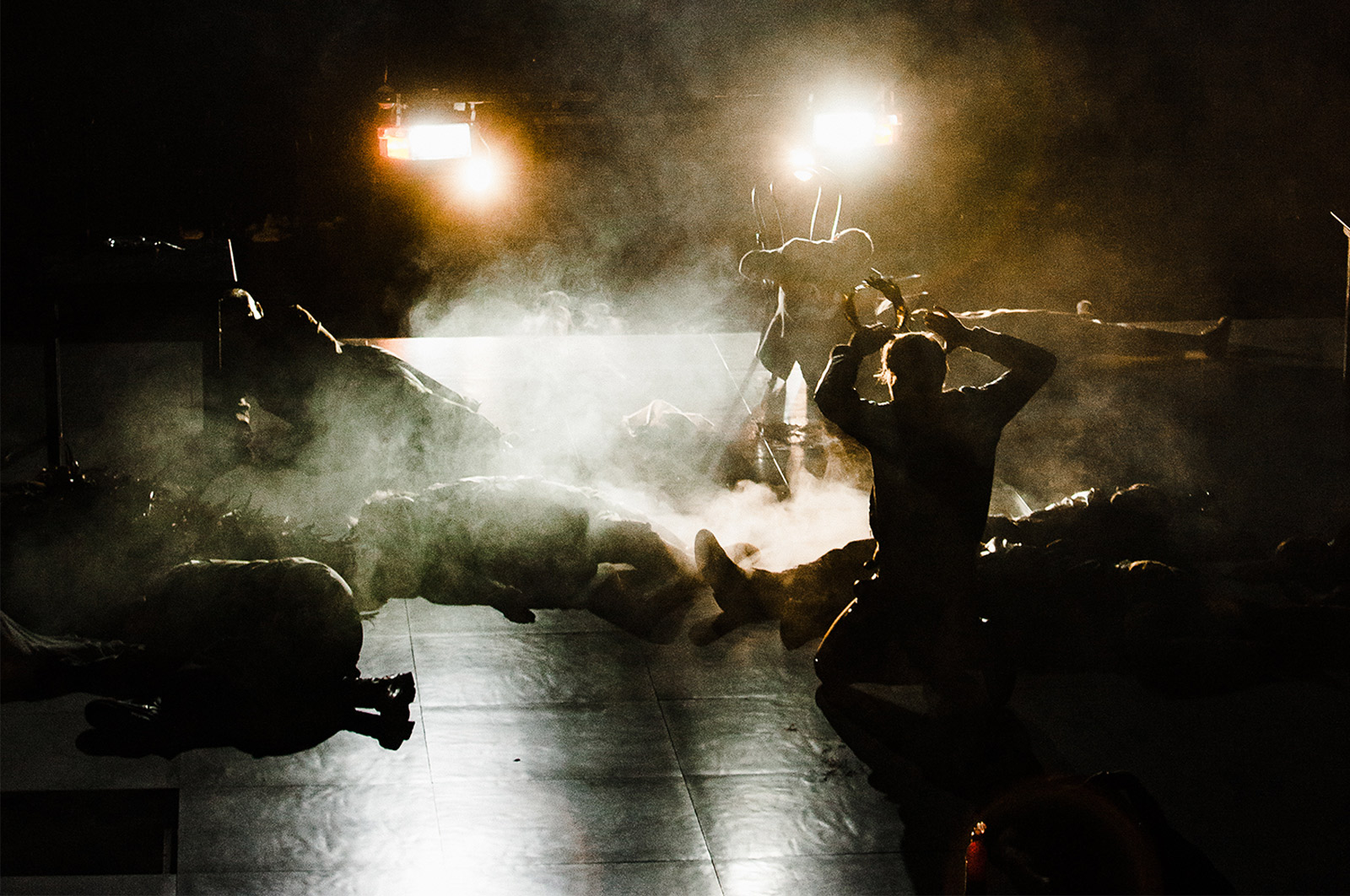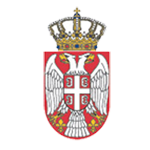Otvaranje 5. Šekspir festivala Opening of the 5th Shakespeare festival
TITUS ANDRONICUS
Zagreb Youth Theater
TITUS ANDRONICUS
Zagreb Youth Theater
Serbian National Theatre, Novi Sad
Thursday, 28. June 2018. at 20:00
Scene: Jovan Djordjevic
TITUS ANDRONICUS
Zagreb Youth Theater
William Shakespeare
Director: Igor Vuk Torbica
Translated into Croatian by: Vladimir Gerić
Dramaturge: Katarina Pejović
Set designer: Branko Hojnik
Costume designer: Doris Kristić
Music: Alen Sinkauz and Nenad Sinkauz
Sound designer: Miroslav Piškulić
Scenic movement advisor: Blaženka Kovač Carić
Lighting designer: Aleksandar Čavlek
Assistant costume designer: Marta Žegura
Assistant director: Robin Mikulić
Assistant dramaturge: Dorotea Šušak
Language advisor: Đurđa Škavić
Stage manager: Milica Kostanić
Premiere: 23 March 2018
Titus Andronicus: Sreten Mokrović
Tamora: Katarina Bistrović Darvaš
Aaron: Rakan Rushaidat
Lavinia: Mia Biondić
Saturninus: Petar Leventić
Marcus Andronicus: Adrian Pezdirc
Demetrius: Dado Ćosić
Chiron: Vedran Živolić
Lucius: Frano Mašković
Alarbus, Mutius, Martius, and Nurse: Jasmin Telalović
Bassianus, Aemilius: Robert Budak
Clown: Milivoj Beader
A report from the heart of darkness
Wouldn’t it be nice to sit back comfortably in the auditorium of the Istra Hall of the Zagreb Youth Theatre and watch Titus Andronicus as if it were a fairy tale of carnage from the times long, long gone?
What a wonderful world it would be! A world rid of the ambition for power, of rigid adherence to rules long obsolete, of violence, sexism, racism, and all other kinds of discrimination and poverty. A world glued together not by public displays of patriotism and hatred of the other, but by the pervasive sense of one-and-the-sameness. A world in which the male and female principles complement instead of exclude each other (unlike now, with our thousands of years of male-dominated history, where women are allowed to power only if they have mastered the male principle impeccably, perhaps with a hint of the dark powers of femininity, such as seduction, plotting, and feigned submission). A world in which parents and children are not the victims of the ancestral sins of upbringing and cultural moulds, but enjoy learning from each other. A world in which the other is not a threat and the culprit for all our blames, but a source of curiosity, of a desire to learn and exchange. All in all, a world not of equality but of unity regained.
What a wonderful world it would be!
But here we are, in the world of pain, whose origin has been so aptly pinpointed by the great worldly spirit, film director and writer Alejandro Jodorowsky: There are four sources of human pain: I, possession, hatred, and fear. Jodorowsky speaks to us, his contemporaries, when he pronounces this insight into our collective unconscious. And the same four sources flood the streets of Shakespeare’s Rome from Titus Andronicus.
This is the first of the ten Shakespeare’s tragedies, allegedly dating from 1592, or a little earlier, depending on the sources. It immediately follows his historical tetralogy (Henry VI and Richard III). Some say that it provoked the most controversial interpretations on stage of all his plays. Originally, it was received with acclaim and played for long before its audience. Then came four centuries of complete silence, save for the vile offences of his critics and literary scholars, who even denied Shakespeare the authorship of the piece at some point.
Some find fault in the crude characterisation, but the main culprit is the plot. Titus Andronicus was branded as the bloodiest of all Shakespeare’s plays – quite mistakenly, as the body count is greater in Richard III – as if the hypocritical West wanted to renounce its bloodthirsty nature, at least in art, even though it was nurturing and advancing it at every step of its historical path. Only after the WW2 cataclysm was it ready for the cathartic reunion with Titus Andronicus, when, to paraphrase Adorno, it was no longer possible to write poetry after Auschwitz.
The play’s legendary 1955 staging by Brook and the Royal Shakespeare Company treated carnage as a metaphor, the common denominator of the contemporary Europe and most of the world. Inspired by Brook, a Polish theatre scholar Jan Kott decided to rehabilitate Titus Andronicus in his masterpiece Shakespeare, Our Contemporary.
The Rome of Titus does not belong to any particular historical period of the Roman Empire, even though it heralds its eclipse. This vagueness frees the play from the burden of historical accuracy and turns Rome into a universal topos, much like the Elsinore of Denmark, Verona of Italy, or Famagusta of Cyprus. Immediately we know this is the Rome of political crisis and bitter power struggles. The unruly society just over its peak. One of the signs that a society or a civilisation is heading toward its downfall is that it is ruled by incompetent fools, who are then replaced by ominous leaders of destruction. In Titus Andronicus the domino effect of bloody events is triggered by a single wrong decision – to hand the authority to a wrong man. This man is Titus Andronicus, a legendary commander of the entire Roman army, worn out by decades of warfare, a conservative man of obsolete outlooks, who is absolutely loyal to the institution of the Emperor and the Empire, and absolutely incompetent for politics. Even though he refuses the crown and the opportunity to bring stability to the society in crisis, Titus does not give up the authority to make decisions about Rome.
His pride, short-sightedness and irresolution, guided by the blind adherence to the old ways, start a chain reaction that will eventually beget vengeance, violence, and bloodshed.
Extreme circumstances tend to unveil what makes individuals and groups tick. Titus puts such hidden archetypal motives as ego, possessiveness, hatred and fear in the plainest of sights. However, this cast and crew is not interested only in the historical analogy of the play as a means to diagnose contemporary ailments. Despite dramaturgical imperfections, this play is a true reflection of Shakespeare’s genius, detached from the limitations of his own time, and hence timeless and universal. If the measure of a play’s greatness is how many interpretations it allows, then Shakespeare is unrivalled with this one. It is amazing, even uncomfortably so, how each new reading of the text peels away another layer of meaning, like a code beneath a code. But some layers can only be revealed on stage, where the play comes to life through the interpretation and personal experience of actors. Only then does Shakespeare’s dramatic genius take its true form. If one thing is certain as the starting point of contemporary interpretation of Shakespeare, it is that body is inseparable from thought, drama, or poetry.
In terms of subjects, Titus is a play about the crisis of leadership, its absence in fact, a fair warning that failing to constantly reconsider our principles as a society will be our doom. It is an account about the generational conflict, about blind conservatism of the old, who sacrifice and (literally) devour their children, about the youth losing battle with reality, life even, because the old have no vision, and the young can’t do anything to break the mould. It is a case history of a patriarchy based on misogyny that has developed mechanisms to hide away men’s fear of women. It is a story about enemy nations willing to unite in the times of crisis and go after other races. This thematic outline nicely maps the play as a query into the origin and nature of evil.
We, the people of the 21st century West live in a mixture of fear and slumber, cosiness and insecurity. We live in the shadow of local and global wars past and future, inebriated by consumerism, blunted by violence we witness every day in the media. We are pervaded by horror and darkness, and yet, what do we really know about the nature of evil?
Philosophy is helpless. From Plato to Nietzsche and Bauman, not one school of philosophy has answered this question. Susan Neiman in her book Evil in Modern Thought identifies fear as our inability to define and articulate
evil. It is the fear that there is no justice or meaning which prevents us to act and understand the world around us. If our understanding of evil is reduced to complacent acceptance of the world as it is, no questions asked, then what can we expect from philosophy?
We are in luck, though, for art does not look for an answer but for a new perspective of things, from which new questions arise. One such perspective that provides an interesting insight into the play is the frequency of certain words in the play. The absolute winner, of course, is “Rome” and its derivatives (over 140 mentions), and the runner up is “honour” (over 50 mentions, if “honest” is included). For comparison, “love” is much less common (less than 30 mentions, if “lovely” and “loving followers/friends” is excluded). These frequencies identify honour as the key trigger of the spiral of vengeance. Titus sacrifices the son of the defeated queen Tamora of the Goths to honour the Roman customs. In other words, he observes an arbitrary, fictitious code of honour. Tamora plots revenge, not as much to avenge her son’s death, as to vindicate her humiliation:
I’ll find a day to massacre them all,
And raze their faction and their family,
The cruel father and his traitorous sons,
To whom I sued for my dear son’s life;
And make them know what ’tis to let a queen
Kneel in the streets and beg for grace in vain.
Titus’ revenge, in turn, is not spurred by the death of any of his sons – not even the one he killed by his own hand to clear his name – or by the emperor’s unjust death sentence or the horrifying mutilation of his daughter Lavinia. No. It is spurred by her rape. By the dishonour it brought:
Both her sweet hands, her tongue, and that more dear
Than hands or tongue, her spotless chastity,
Inhuman traitors, you constrain’d and forc’d.
This brings us to another outstanding issue pertinent to the male-dominated, patriarchal society of Titus Andronicus – commodification of women. A woman retains her value in a patriarchy as long as she is pure, unblemished by men, save for the official spouse – much like a merchandise. As soon as this is compromised, not only does she lose her value but her right to live as well. This is quite plainly explained by Emperor Saturninus, when he answers Titus’ question why it is proper to kill one’s own daughter if she’s been raped:
Because the girl should not survive her shame,
And by her presence still renew [father’s] sorrows.
This is how honour becomes an instrument of evil and destruction, which in this play assumes mythical proportions with the act of sacrificing Tamora’s other two sons and eating their flesh. Even the worst savagery becomes acceptable if the social code or custom finds it ethical.
The only protagonist who does not invoke honour is the mastermind of evil, Aaron the Moor, something of a crossbreed between Kayser Söze and a coloured epitome of the underdog. He is the central point of this contemporary interpretation of Titus Andronicus, a dark mirror reflecting the rampant Western civilisation and its diabolic hypocrisy in negative. His scorn for the Romans and their scorn for him give another important insight into the workings of evil: you first need to dehumanise your victim or opponent, strip them of any human attributes. Yet there lies a paradox: to dehumanise someone you need to be aware of their humanity. What if the root of evil lies in the fear to face this other’s humanity? Does this sound like splitting hair or is it the crucial distinction, especially for us here and now?
Whether it is the Roman Empire, Elizabethan England, Zagreb, or the world in 2018… nothing has really changed. This may be an oversimplification, but true nonetheless.
Yet, to paraphrase Susan Neiman, if we do not question this world, no wonder we won’t be able to find an answer. Therefore, to conclude this little essay, here are some new-age questions. They may seem pretentious, but it’s okay, just as long as they try to get past the inertia and indifference we live in.
Has the awareness of the cyclic recurrence of destruction become deep enough over time to finally inform the collective unconscious how unwarranted it really is? Will we eventually come to understand that the main of the four sources of pain is fear, as it nurtures the ego, the need to possess, and hatred itself? I refer to that primal of fears that makes Kurtz, the protagonist of Conrad’s Heart of Darkness, cry with his final breath: “The horror! The horror!”. Or will we even come to understand that FEAR is but an acronym for False Evidence Appearing Real?
Time that lies ahead of us, around us, and most importantly, within us, is vast with options. One of them is that we sit back comfortably in the Zagreb Youth Theatre and watch Titus Andronicus with a wise and sympathetic calm, as if it were a report from the heart of darkness long, long gone.
Are we ready to cross to the other side of the dark mirror of fear?
Katarina Pejović
Zagreb Youth Theater
is a modern, prestigious theater hand in hand with recent European trends in performing arts, recognized and respected outside the Croatian borders as well. Multidirectional programming guidelines, an experienced and agile ensemble, the College as the core of future professionals and theater-conscious audience, openness to projects of the non-institutional scene, and a preference for exploring and various interlacings of genre make it a special and important junction on the Croatian theater map. By networking with a number of international organizations, supporting hostings, and participating in co-productions, the ZKM Theater has established its position in the European theater space as well. In a wider cultural context, it enables the conditions for the development of various artistic practices, encourages creativity and cultural and spiritual enrichment, recognizes positive social values, and impacts their growth.
 english
english  srpski
srpski 
